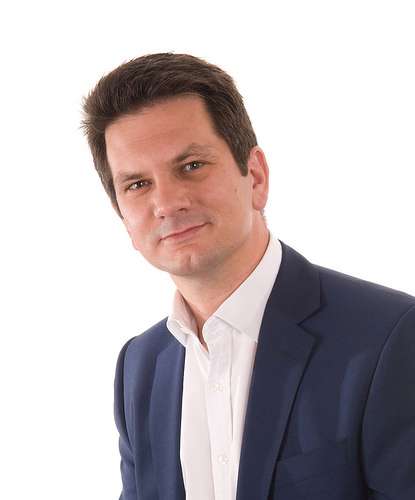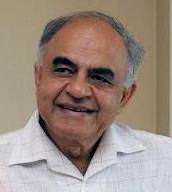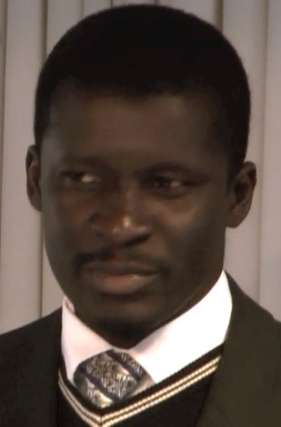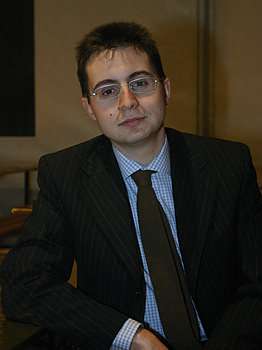5 Foreign Libertarians Making a Difference Around the Globe
The liberty movement goes international.
Libertarians in the U.S. have no shortage of bad and worrying developments to rail against; wars abroad, irresponsible government spending, the war on drugs, and the erosion of civil liberties. But American libertarians are not struggling against the state all by themselves. There are libertarians everywhere, including in countries that do not have comparatively free speech, a culture sympathetic to markets or liberty, or our access to resources. Here are a few global freedom-fighters worth keeping an eye on.

1. Steve Baker MP: The U.K.
Since the formation of the coalition government in 2010, Britain has been one of the anti-austerity movement's favorite examples of how austerity does not work. Although the British Conservative-led government says that it is engaging in cuts the fact is that austerity has yet to be realized. In light of the financial crisis the British government has engaged in pro-regulation rhetoric. For many British libertarians, the House of Commons is a place where few friends can be found. However, Member of Parliament Steve Baker is a welcome exception to this trend.
Baker is a conservative disciple of the Austrian school of economics. Before entering politics Baker worked as an Engineer Officer in the Royal Air Force and in consulting. He also co-founded the Cobden Centre, which has as its vision statement:
Our vision is of a peaceful, open and free society based on a stable, sustainable economy in which everyone has the opportunity to participate in constantly growing real prosperity.
Baker was introduced to the Austrian business cycle theory after the dotcom crash. He outlined his ideological journey in an interview conducted shortly after being elected.
In the U.K. calls for strong state solutions to government-created problems are tragically more common than they are in the U.S. While much of the news coming out of the U.K. is often depressing, to those who believe in limited government it is reassuring to know there is at least one Member of Parliament who understands the moral and economic superiority of free markets over state control.
RT interviewed Steve Baker on the financial crisis and banking, watch below:
2. Gurcharan Das: India

Recent news out of India has not been good. The gang rape of a 23-year-old student has illustrated not only the barbarism that is too often inflicted on innocent people, but also the inability of Indian authorities to address the failure of their institutions. And the recent skirmishes on the Pakistani-Indian border are only the most recent reminder of how worryingly fragile the border between two of the world's nuclear powers is.
Gurcharan Das is an Indian libertarian who understands how important legal and economic cultures are for economic prosperity. In his book India Grows at Night: A Liberal Case for a Strong State, Das argues that India's private sector would be able to grow were public institutions more effective. Das does not mean what many American libertarians think when they hear the phrase "strong state," something that Das explained in a column for The Times of India:
A 'strong state' usually carries a bad odour, conjuring up authoritarian images of Nazi Germany or Soviet Russia. A 'liberal, strong state' is, however, not oppressive. It is efficient, enabling and tough against law-breakers. It punishes the corrupt swiftly. But it also protects liberties and dissent and enjoys legitimacy among the governed. A strong civil society is needed to hold such a state accountable. More than ever, Indians today need to make a liberal case for such a strong state.
Given India's economic potential it would be reassuring to see the ideas of a self-described Mises admirer being taken seriously.

3. Manuel de Araújo: Mozambique
Many times when free-market advocates speak to a skeptical crowd some familiar illustrations and examples are used to demonstrate the power of markets. One of the most striking and memorable of these is the photograph of the Korean peninsular at night. Another comparison that is often used is that of Hong Kong and China. Hong Kong operates under different economic rules than China, and has had impressive results. The special administrative regions created by the Chinese government offer some of the best examples of how effective markets can be in establishing prosperity.
On Africa's east coast, in Mozambique, a young mayor might have something similar in mind. Manuel de Araújo is the mayor of Quelimane, located on the Indian Ocean, and is a member of the Mozambique Democratic Movement, Mozambique's pro-capitalism and anti-communist party. When he became mayor of Quelimane, de Araújo was faced with unenviable fiscal situation and a culture of corruption. However, within a short amount of time de Araújo had managed to double the revenue headed to the town's council thanks to a crackdown on corruption. Last August he worked with the Language of Liberty Institute to organize a three-day seminar on libertarianism in Quelimane. Let's hope some of the lessons rubbed off.
It may be too much to expect that one mayor in Mozambique will be able to kick-start a classical liberal revolution across a country ruled by leftists, but it would be a great testament to de Araújo if he is able to demonstrate the effectiveness of freedom in a country that has known more than its fair share of big government.

4. Mirsuljan Namazaliev: Kyrgyzstan
The differences in the outcomes realized by post-Soviet countries have been vast. In Eastern Europe the relative successes of Estonia are in stark contrast to Belarus, a country still ruled by a communist dictatorship. In Central Asia there are similar (but perhaps not quite as dramatic) differences between countries that used to be part of the Soviet Union. Uzbekistan is a dictatorship, while Kyrgyzstan, despite its comparatively recent ethnic strifes, has made some improvements to its record on human rights abuses as well as economic and political freedom.
Kyrgystan is home to the Central Asian Free Market Institute, whose managing director is 25-year-old Mirsuljan Namazaliev. Before managing a think tank that educates and advocates for free markets in Central Asia, Namazaliev was an organizer of the "I Do Not Believe" Campaign, which protested the outcomes of the parliamentary elections in 2007. Taking part in these protests resulted in Namazaliev being detained by police. He wrote an essay on the disputed election results, his arrest, and the "I Don't Believe" Campaign, which can be read here.
Speaking to Reason Namazaliev said that he was probably arrested 10 times and was once jailed for seven days.
On the Central Asian Free Market Institute's website the vision is stated clearly:
Central Asia, an oasis of freedom, prosperity and peace
While there is a long way to go before this vision is realized, it's reassuring to know a motivated young man who is no stranger to the strong arms of big government is pursuing it.

5. Alberto Mingardi: Italy
The euro crisis has been one of the best recent illustrations of governments mismanaging economies. However, despite politicians being the cause of many of Europe's current miseries, many in Europe still insist on advocating for government solutions, with "austerity" being met with protests across the continent.
Thankfully there are some who speak out against the knee-jerk tendency in Europe to look to the state for solutions. Alberto Mingardi is the director general of Istituto Bruno Leoni, Italy's free-market think tank, and adjunct scholar at the Cato Institute. Mingardi is a refreshing voice of reason when it comes to the euro crisis. In an article for Forbes from last July Mingardi nicely illustrated how absent the necessary political culture is in Europe:
European governments are large and intrusive. Neither Italy, France nor Spain, let alone Greece, has ever known the kind of privatization cure Margaret Thatcher administered to Britain, though it should be said that Italy privatized rather extensively, in the 1990s. Despite that, the state owns insurance companies, stakes in major energy companies, the postal service, the train service, local transportation, a cornucopia of local "public services" not particularly renowned for their efficiency in delivering—but obviously dear to the political class, as a means to keep their grip on the Italian economy. The same can be said for other Mediterranean countries.
What is indeed astonishing is that, in this context, nobody seems to be ready to try the straightforward device to trim the public debt by virtue of selling the huge Italian state holdings or severely cutting public spending. Instead, the political class seeks to squeeze its already highly taxed citizens like lemons.
Some have declared the euro crisis over. The rest of 2013 will almost certainly prove the opposite. As the euro crisis continues, good analysis and commentary from a libertarian and European perspective will become increasingly sought after, as well as increasingly vindicated. Libertarians should feel reassured that Alberto Mingardi will continue to provide a voice of sanity on a continent that has mostly gone mad.
